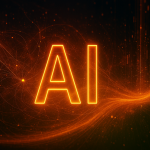Recent advances in artificial intelligence have made a significant impact at this year’s Nobel Prizes, drawing attention across the scientific community. Recognizing the role of AI in scientific progress, the Nobel Prize in Chemistry was awarded to DeepMind’s Demis Hassabis and John Jumper, along with biochemist David Baker, for their work on an AI model predicting protein structures. Simultaneously, Geoffrey Hinton and John Hopfield received the Nobel Prize in Physics for pioneering efforts in neural networks. These awards highlight the integral role AI plays in scientific advancements, underscoring its broad applicability and influence across diverse disciplines.
In past instances, the Nobel Prizes have seen technological and interdisciplinary contributions recognized, though AI’s dual recognition in both physics and chemistry this year is unprecedented. Previously, innovations in areas like computational algorithms and biochemistry have been honored separately. The awards reflect a growing trend where AI is not only a tool but a transformative force reshaping traditional fields. This evolution raises questions about the future direction of scientific honors and their ability to capture the essence of modern research advancements.
How are AI technologies affecting scientific recognition?
AI technologies have significantly influenced scientific recognition, as seen in this year’s Nobel awards. Geoffrey Hinton expressed surprise at receiving the physics prize, acknowledging his limited background in the discipline, yet his contributions to neural network development have laid crucial groundwork. Similarly, the acknowledgment of Hassabis and Jumper’s AI-driven AlphaFold program in predicting protein structures showcases AI’s expanding role in problem-solving within scientific frameworks traditionally grounded in human-driven research.
Should Nobel Prize categories evolve to include emerging fields?
The success of AI in earning Nobel recognition prompts debates about the need for evolving prize categories. Currently, the awards adhere to categories established over a century ago. Despite technological advancements, the Nobel Foundation remains committed to the original categories outlined by Alfred Nobel. The addition of an economic sciences prize in 1968 was an exception, funded by Sveriges Riksbank, and not officially part of the traditional Nobel Prizes.
The scientific community has voiced calls for broader categories that reflect contemporary scientific fields. Past appeals by researchers and academics for new categories, such as global environment and public health, did not lead to changes. The inclusion of AI technologies in the recent awards demonstrates their scientific importance, yet the Nobel Foundation shows no signs of updating categories to align with new scientific realities.
These recognitions signify a potential shift toward broader acceptance of AI as a critical component of scientific discovery. While the foundation’s categories remain unchanged, the influence of AI is anticipated to inspire further integration of technology into scientific research, prompting discussions on whether the traditional Nobel categories adequately capture the scope of modern scientific endeavors.
The dual recognition of AI in the Nobel Prizes signifies its increasing role in scientific innovation. As AI continues to evolve, its impact on traditional fields could prompt further discussions about recognizing interdisciplinary achievements. Questions on the adequacy of current Nobel categories in capturing the breadth of modern science remain, yet AI’s contribution to scientific discovery is undeniable, encouraging continued exploration of its potential across various domains.










